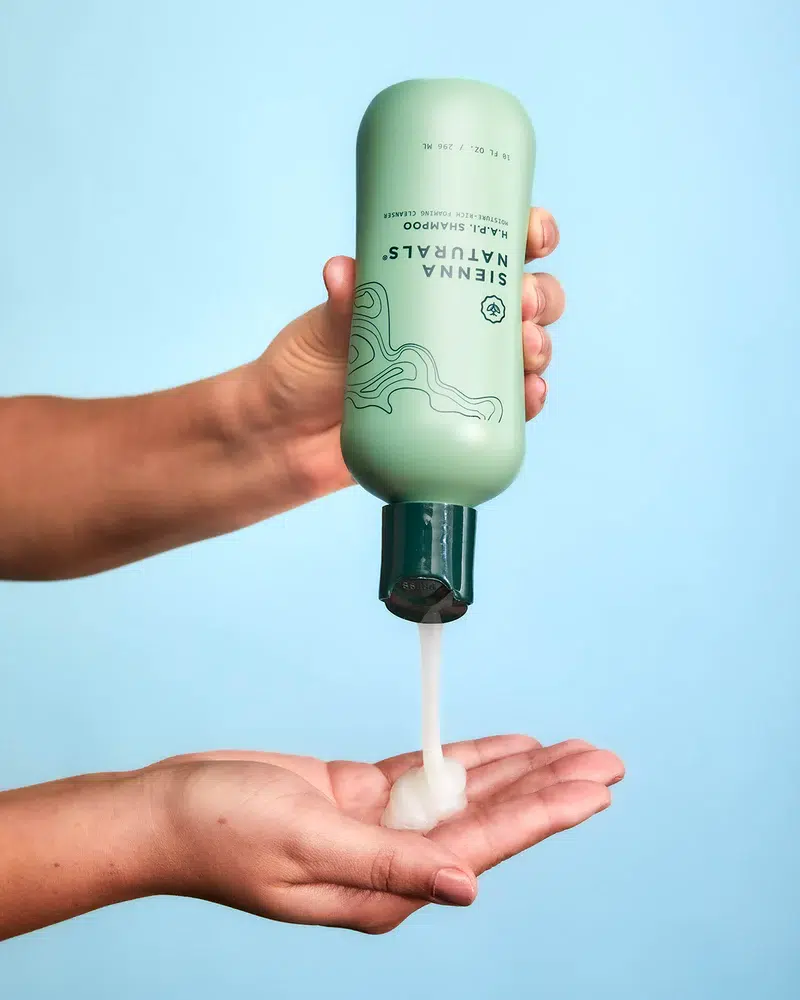
How To Know If Your Humor Is A Healthy Coping Mechanism
“I suppose now’s the time to make an inappropriate joke,” my friend said in a quivering voice. These were her first words to me when she answered the phone after texting me the most devastating news moments earlier. Neither of us knew what to say or do in the shock of it all. Instead, we attempted to stick the pieces of a shattered heart together with humor. But in that context, humor was a dried-out glue stick at best.
We’ve all used humor as a buffer or a brightness in moments of crisis, shock, trauma, or even social situations where we feel out of place or at-risk. As a shy blonde pre-teen, I’d memorize “blonde jokes” so I could make them myself before anyone could call me less intelligent because of the color of my hair. Many of these jokes included dehumanization and self-harm that my peers would laugh gleefully at. But at least I got to make the jokes first, I’d think with a wince, at least I was in control of the narrative.
“We’ve all used humor as a buffer or a brightness in moments of crisis, shock, trauma, or even social situations where we feel out of place or at-risk. It helps us feel in control of the narrative.”
And that’s what coping mechanisms do for us — they allow us to feel a little more in control of whatever situation we happen to be in. While research has uncovered more than 400 coping mechanisms, humor among them, it’s worth noting that they can also be classified as adaptive or maladaptive. (A distinction, which could be argued, isn’t precise, because after all, coping is inherently a neutral term for adapting to your surroundings.)
Generally, though, the idea is that some coping strategies are more healthful in processing (like getting enough sleep), while others can hold us back (like overindulging in alcohol or drugs.) From my own experience? Humor can be both. And it’s difficult, sometimes, to tell when it’s helping versus when it’s hurting.
So if the results are so mixed, why do we turn to humor as a coping mechanism?
“Humor can reduce stress by lowering cortisol levels, enhance mood by increasing endorphin release, and provide a temporary escape from distressing emotions or situations.”
— Gary Tucker, Licensed Psychotherapist
“Humor can reduce stress by lowering cortisol levels, enhance mood by increasing endorphin release, and provide a temporary escape from distressing emotions or situations,” says Gary Tucker, Chief Clinical Officer and Licensed Psychotherapist at D’Amore Mental Health in California.
I mean, who doesn’t love a good joke in an uncomfortable situation? It gives us a moment to detach from pain or stress, which makes intense emotions feel a little more manageable. (Have you ever laughed about a happy memory while experiencing grief? It’s that contradictory feeling; love for what was, sadness for what has come to be.)
Tucker follows up by reminding us that humor can help make problems feel a little lighter — and more communal.
“Sharing humor promotes bonding and reduces feelings of isolation by facilitating shared experiences,” explains Tucker. It can be easier to broach heavy topics when if we can approach them with a bit of humor.
Making jokes about a situation beyond our control can also strengthen our resilience, because we feel more prepared to face whatever outcome may occur. Allowing ourselves to consider a variety of outcomes gives us mental flexibility to change our minds.
Ultimately, when humor is a helpful coping mechanism, we can distance and then reframe our experience in new and interesting ways that are easier to process. Being flexible with our emotions around an experience also allows us to de-center negative thoughts while giving us a sense of autonomy over the discomfort of it all.
“When we use humor as a helpful coping mechanism, we can distance and then reframe our experience in new and interesting ways that are easier to process.”
I practice this most frequently after the losses of my grandparents, and the ebb and flow of grief left in their wake. I think of situations they’d find ironic, interesting, or funny, and call to mind their sweet smiles and the sugary sound of their laughter. I can’t bring them back, physically, but their vibrance still lives on through my perspective — and through my favorite happy memories of them. I share a laugh with their echoes on a regular basis, and I feel they’re here with me.
Sometimes though, especially when I’m amongst new friends or acquaintances, I feel the need to mask this strange sorrow-meets-joy. Because how can you find humor and lightness amongst loss? Does it make you a bad person when you think, first, of the joy rather than the sorrow?
“Emotions are very natural human reactions to our surroundings, and our modern society tends to favor logic over emotions,” says Yuxin Sin, a licensed psychologist in Seattle, Washington.
In some spaces, our emotions on any end of the spectrum might be perceived as a weakness (especially for folks in marginalized communities). But humor can bridge a gap we can’t comfortably bridge yet, socially. “A lot of us are conditioned to not confront and express our feelings directly and authentically, hence humor can show up as an easier and safer way to express feelings.”
“A lot of us are conditioned to not confront and express our feelings directly and authentically, hence humor can show up as an easier and safer way to express feelings.”
Yuxin Sin, Licensed Psychologist
With a disarming joke, we can open up a wider range of conversation that can ultimately help us on our healing journey. Someone near and dear to me had a double mastectomy while navigating breast cancer, and opted for reconstruction afterwards. I think often of the shirt she mused about getting: “Yes, they’re fake; the first ones tried to kill me.” Wearing that message (on her own terms, very importantly) restores the narrative to her, and invites others to engage if they choose.
Of course, though, humor isn’t always the solution. When humor functions as a maladaptive coping mechanism, it can distance us from our friends and family — and even halt the healing process altogether. Humor, in this instance, becomes a barrier from feeling what needs to be felt, and prevents us from seeking solace in our community.
“While [humor] can facilitate resilience and emotional flexibility, it can also act as a barrier to deeper emotional engagement and healing if overused,” says Ryan Sheridan, an integrative psychiatric nurse practitioner. “Balancing humor with sincere engagement in therapeutic processes is key.”
“When humor functions as a maladaptive coping mechanism, it can distance us from our friends and family — and even halt the healing process altogether.”
(Cut to me telling my own therapist a joke instead of expressing how I truly feel. She’s got me clocked now though, so she pushes back when she recognizes my avoidance). Sheridan notes that humor, while it can open up new opportunities for conversation and healing, can also prevent those less comfortable emotions from being explored or expressed.
As I’ve learned more about myself throughout the years, I’m more adept at recognizing when I’m building a wall instead of a bridge with my humor. It begins as a physical sensation — I feel sociable and warm when I’m using humor to connect. But there’s a sharp, almost spiky shape that my words take when I’m using humor as a deflection. (Note: there’s a difference between deflection just to avoid, and deflection used as a safety mechanism — sometimes we have to get a little spiky to protect ourselves with folks who don’t respect boundaries).
If I’m still not sure, I consider who I’m talking to and what my level of emotional safety is. If I am with someone I trust and find myself joking about feeling not-quite like myself, I try to re-evaluate. Am I avoiding something I’m not ready to face, or am I avoiding something that, in reality, it’s time to face?
If you’re not sure how humor is showing up as a communication tool in your own life, I recommend considering whether you lean on a script or if you actively surprise yourself. When I didn’t want to discuss a breakup out of avoidance, I relied on the same tired jokes — even with my closest friends. I was covering up something I really needed to be discussing. But when humor cracks through as a surprise to me as well as others, I take that as a sign my mind wants to process that topic in the safety of whoever I’m with.
“While humor can facilitate resilience and emotional flexibility, it can also act as a barrier to deeper emotional engagement and healing if overused.”
– Ryan Sheridan, Integrative Psychiatric Nurse Practitioner
But, when we naturally flow into a joke about something difficult in our lives and remain open to discussing it earnestly, I see that as a good sign we’re interested in reframing. Follow that, and let humor be the opening door for more vulnerability. (I know, it’s scary, but many people are more gracious than you’d think).
The one thing I’ve learned through all this, though, is that sometimes coping is just coping. Sometimes it’s not healthful, or mindful, or forward-moving. Sometimes we use whatever tools we can as a way to help us through the day. I think that’s okay some days, as long as it doesn’t keep us stuck where we’re at.
Still, pay attention to your jokes — and pay attention to the ways other use humor, too. There’s sometimes a turbulent storm hidden underneath the ray of sunshine laughing with you, and it’s important to offer ourselves and others a safe place to just feel.
If you’ve found yourself in a pattern of coping with humor that you don’t feel good about, explore what your avoidance might be trying to tell you. Meet yourself where you’re at, and be patient with the next steps — it might be deeply uncomfortable to admit you’re not okay without making a deflective joke. Don’t lose sight of the pain that you’re running from, whether with jokes or anger or substances, but also do not let that same pain consume you.
Humor is a social tool that can help us broach the tough stuff. But if you try to use it as armor in spaces you’re already safe in, humor won’t keep you from pain — it can only keep the pain hidden from others for longer. And whatever it is we’re dealing with, we don’t have to cope alone.
Cheers to those sometimes dark jokes that open up a glimmer of vulnerability — so we can heal, rather than hide.
“If you try to use humor as armor in spaces you’re already safe in, it won’t keep you from pain — it can only keep the pain hidden from others for longer.”
Emily McGowan is the Editorial Director at The Good Trade. She studied Creative Writing and Business at Indiana University, and has over ten years of experience as a writer and editor in sustainability and lifestyle spaces. Since 2017, she’s been discovering and reviewing the top sustainable home, fashion, beauty, and wellness products so readers can make their most informed decisions. Her editorial work has been recognized by major publications like The New York Times and BBC Worklife. You can usually find her in her colorful Los Angeles apartment journaling, caring for her rabbits and cat, or gaming. Say hi on Instagram!




